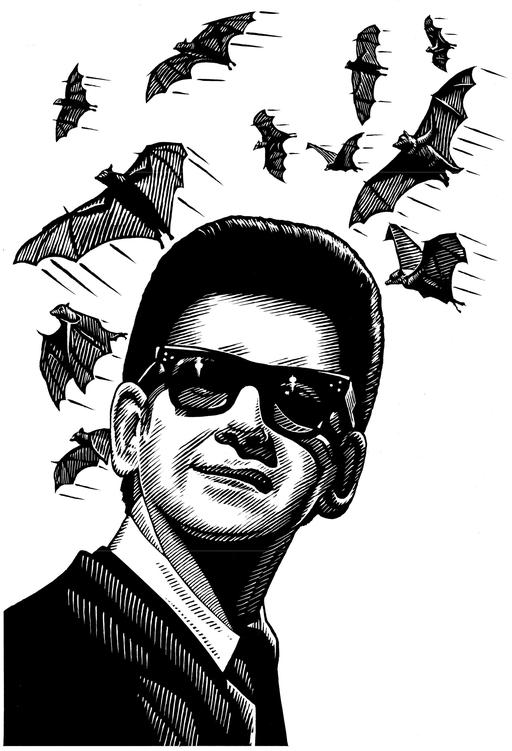God Save Texas: A Journey Into the Soul of the Lone Star State (34 page)
Read God Save Texas: A Journey Into the Soul of the Lone Star State Online
Authors: Lawrence Wright
Tags: #politics


about what the border is,” Fernando Garcia, the founder of the Border Network for Human Rights, told me. “The farther away you are, the more chaotic and violent it appears, but when you live at the border, there is a different reality.” Alarmed by the increasing militarization along the border and the abuses that were taking place against undocumented migrants, Garcia began organizing the immigrant community and informing people of their rights. He says he has found a surprisingly willing partner in the El Paso Sector of the Border Patrol, which reviews every case of abuse that Garcia’s organization collects, and as a result, complaints have decreased substantially.
I spoke to several women who participated. One had been living in El Paso and hadn’t seen her father and siblings for sixteen years. Another woman said she and her husband had been living together in El Paso for twenty-seven years until he was arrested for drinking and driving and was sent back to Mexico. A third woman has a daughter who is one of the “dreamers” who grew up in America and hopes to gain citizenship. “Our situation is precarious under the new administration,” the woman said. “We’re living in the shadows now.”
One can’t live in Texas without being aware of those shadow people. They tread a line that the rest of us scarcely acknowledge. At any moment, everything can be taken away, and they are thrown back into the poverty, violence, and desperation that drove them to leave their native lands and take a chance living an underground life.
I thought about the sanctuary cities bill in September 2017, when a 28-year-old Mexican national, Juan Coronilla-Guerrero, was assassinated in a gang-ridden town in central Mexico. He had been living in Austin with his wife. He was picked up at the Travis County courthouse in March, when he responded to misdemeanor charges of assault and possession of marijuana. He was one of those whom Sheriff Sally Hernandez had refused to hold for federal immigration authorities because he had not committed a sufficiently serious offense. His wife had warned a federal judge that her husband would be killed if he were sent back to Mexico. Other Mexican nationals detained by U.S. immigration authorities have pleaded to be deported anywhere other than across the Texas border, where the Zetas, one of the most brutal of the drug cartels that run much of Mexico, lie in wait for them, routinely kidnapping them for ransom, but often winding up killing them instead.
The violence and criminality does spill over the border. “In the last five and a half years in Texas,” Dan Patrick told Fox Business News, “we’ve apprehended over two hundred and twelve thousand criminal aliens. We’ve charged them with nearly six hundred thousand crimes, including over a thousand murders, six thousand sexual assaults, ninety thousand other crimes, hundreds of kidnappings. We have to stop sanctuary cities, secure the border, and make America great again.”
I have spent much of my professional life writing about terrorism. I believe in secure borders. There is good reason to worry about having a vast class of people inside our country who are made criminals simply by their presence. I understand but do not condone their actions. We are complicit in their suffering, however. We take advantage of their weakness, their lack of standing or recourse. The shadow people provide the cheap labor that border states, especially, depend upon. They are not slaves, but neither are they free.

ou don’t get to Wink, Texas, by accident. It’s sixty miles west of Odessa, tucked below the corner of New Mexico, on a two-lane blacktop passing through the aptly named hamlet of Notrees and a town called Kermit after the son of Theodore Roosevelt who once came to hunt antelope. Seven miles south of Kermit is Wink. It is one of the many near-ghost towns stranded by an oil boom that came and went. In the 1920s, thirty thousand people lived here. Wink was a den of gambling and prostitution, run by the Mob. Those times are long gone, like tumbleweeds blown away in the wind. Wink now is as close to nowhere as you can get and still be on pavement.
On the front door of the Roy Orbison Museum is a number to call if you want to be let in. Walter Quigley answered and said he’d be right over.
“Do you smell that?” Walter asked, as he unlocked the door. He pointed to the awning above us. “Bats,” he said. “There was a gap up there and several hundred of them got into that space. When they flew out the other evening, I sealed it up, but evidently there are still a bunch in there.”
Inside the single-room museum was a small collection of artifacts and photos of Roy at different stages of his life, along with album covers and posters. Above the door was a beat-up guitar that Roy once played, which had been hanging in a friend’s garage for forty years. As a teenager, Roy was dumpy, pale as a biscuit, and nearly blind; in high school, he began dyeing his cottony hair black so he didn’t look like an albino. Still, he was picked on incessantly. “The students here would treat him so rotten dirty,” Walter said. “I won’t repeat what they said to him.”
Walter put on a CD of one of Roy’s albums. There’s so much pain and longing in those songs—“Crying,” “Dream Baby,” “Oh, Pretty Woman,” and especially “Only the Lonely”—you can feel the rejection pulsing through his soaring, spectral voice, which filled up the little museum, along with the occasional squeak of a dying bat.
After I moved to Texas, I became a musician. I was thirty-eight and a half years old, and determined to play “Great Balls of Fire” on my fortieth birthday. It was the hardest thing I’ve ever done. I’m still taking piano lessons, and although I’ll never be a great player, I’m in a band, called WhoDo. We play blues and rockabilly. Our set list is populated with songs by Texas musicians, including Stevie Ray Vaughan, Muddy Waters, Buddy Holly, T-Bone Walker, and of course the great Roy Orbison.
One of my bandmates, Brian Turner, who sings Roy’s version of “Mean Woman Blues” to close out our show, had tipped me off to ask Walter about the sacred relic, the object of the pilgrim’s journey. Walter hesitated, then reached under the display case and pulled out a wooden box, wrapped in a sweatshirt. Inside the box were Roy’s trademark tinted eyeglasses, black plastic frames with bifocal lavender lenses. I put them on.

I WAS
in high school in Dallas, my friends and I would drive around aimlessly for hours, mesmerized by a late-night broadcast on WRR called
Kat’s Karavan
. It played early rhythm and blues, otherwise known as “race music,” by such great Texas bluesmen as T-Bone Walker, Lightnin’ Hopkins, and Lead Belly. You can draw a line from those musicians to Janis Joplin, who took the Texas blues and used it to supercharge rock and roll. Another trajectory would go from RB through mariachi to arrive at Selena, or through pop to discover Beyoncé. Texas is a great scrambler of cultural forms.
I know classical pianists who can trace their training through their teacher and their teacher’s teachers all the way back to Beethoven. I asked Floyd where our tradition comes from. “Al Stricklin,” he said.
As Floyd tells it, Stricklin, from Antioch, Texas—the Antioch that is in Johnson County (there have been as many as fifteen Antiochs in Texas)—was a self-taught jazz pianist who was influenced by hearing Earl “Fatha” Hines and his smooth Chicago-style swing on the radio. In 1927, when Stricklin was working at a radio station in Fort Worth, three musicians came in for an audition. One of them carried a fiddle in a flour sack. He introduced himself as Bob Wills from Hall County, in the Panhandle.
“What kind of music do you play?” Stricklin asked.
“Different,” said Wills.
Wills promised he would come back and hire Stricklin as his piano player one day when he formed a real band. In the meantime, Wills and his players formed the Light Crust Doughboys, backing up Pappy O’Daniel on his radio show. They were wildly popular, but O’Daniel was a tyrant, and Wills had a drinking problem. After O’Daniel fired him, Wills formed another band that became known as the Texas Playboys. In 1935, Stricklin joined the group. The fusion of Chicago jazz, frontier fiddle, and the blues that Bob Wills learned from his black playmates in the cotton fields constituted the fundamental elements of Western swing. My own band once got to play with Johnny Gimble, who was a fiddle player in the Playboys. I felt that I had been inducted into a fraternity that I didn’t really qualify for.
I asked Floyd what characterizes the “Texas” sound. “First of all, it’s riff-based,” he said. Riffs are brief musical figures that are stated and restated and explored over different chord changes. Musicians talk about being in the “pocket,” which Floyd explains is “not a spot, it’s an area. Texas music tends to be played on the backside of the groove.” You can hear that in the blues shuffles of the Vaughan brothers, T-Bone Walker, Johnny Winter, ZZ Top, and Red Garland—a kind of relaxed, almost-too-late stutter step.
Floyd grew up in Berkeley, California, in an academic Jewish household, but his ear was captured by the sounds of Western swing. To the despair of his parents, he ran off and joined a band, Asleep at the Wheel, led by Ray Benson, then in Oakland, which was dedicated to keeping that music alive. Bob Wills was their inspiration, and Al Stricklin became Floyd’s mentor. Willie Nelson invited the band to move to Austin in 1974.
Floyd’s real name is Jim Haber. The stage name was thrust upon him by a couple of his Asleep at the Wheel cohorts who had analyzed his style of playing—which, in their minds, was a combination of Floyd Cramer, the father of country piano, and Fats Domino, the New Orleans RB king. “When Ray introduces you tonight, he’s going to call you Floyd Domino,” one of them said. It was supposed to be an experiment, but as soon as Jim walked off the stage, everyone started calling him Floyd. It just stuck. A decade later, when Floyd was touring with Waylon Jennings, he decided he wanted his real name back. The production manager called the band together and told them, “Floyd’s real name is Jim, and from now on, that’s what he wants you to call him. Ain’t that right, Floyd?”